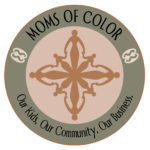
Hood Healing: Self-Care for Moms Who Grew Up in Chaos
Motherhood is hard enough, but when you grew up in chaos, it can feel like you’re constantly trying to rewrite your story while living it. Maybe you had to raise yourself, maybe love felt conditional, or maybe survival mode was your default setting. But guess what? You’ve made it through every challenge thrown your way—and that means you have the strength to change your mindset, redefine your life, and use your past as fuel for your future.
Turning Pain into Purpose
Hood healing isn’t just about coping—it’s about thriving. It’s about smiling through the chaos not because life is easy, but because you refuse to be broken by it. Your past doesn’t define you; it prepares you. Every hardship you’ve endured has built resilience, and that resilience is your greatest asset.
How to Reframe Your Struggles & Use Them for Growth
1. Recognize Your Power
You have survived things that would have broken others. Instead of seeing yourself as someone who suffered, see yourself as someone who overcame. Remind yourself: If I made it through that, I can make it through anything.
2. Reframe Your Story
Instead of saying, I went through hard times, try saying, I learned valuable lessons that made me stronger. Your past isn’t just pain; it’s a blueprint for your growth and a reminder of how far you’ve come.
3. Use the Chaos as Motivation
The things that once held you back can now push you forward. If you grew up without stability, you can create it for yourself and your children. If you were told you weren’t enough, prove to yourself that you are more than enough. Your struggles aren’t obstacles—they’re stepping stones.
4. Build a Mentality of Abundance
Instead of focusing on what you lacked, focus on what you’re creating. Healing is about choosing joy, even when it’s hard. It’s about seeing the good, finding laughter in the madness, and knowing that better days are ahead.
5. Smile Through It, But Feel Through It Too
Healing doesn’t mean ignoring your pain—it means transforming it. Laugh when you can, cry when you need to, and remember that both are signs of strength. Your emotions are valid, and your healing journey is uniquely yours.
The Mindset Shift That Changes Everything
When you stop seeing yourself as someone who’s struggling and start seeing yourself as someone who’s winning, everything changes. Your past didn’t break you—it prepared you. Your hardships didn’t define you—they refined you.
You are strong, you are capable, and you have the power to turn your past into purpose.
Final Thoughts
You are not just surviving—you are thriving. You are not just pushing through—you are rising. And every time you choose to smile, heal, and move forward, you are breaking cycles and creating a better future for yourself and your children. The chaos may have shaped you, but it does not own you.
Take a deep breath, mama. You are unstoppable.
With Love, Lakischa Smith
Meet Lakischa Smith, a proud mother and a dedicated public health advocate. With a Bachelor’s from Dillard University and a Master’s in Public Health from Florida International University, she’s committed to sharing honest narratives about black motherhood. Lakischa believes in fostering sisterhood to combat the pervasive forces of white supremacy, and empowering African American women to be agents of change for future generations. She asserts that recognizing and addressing our community’s struggles is crucial, for healing is the key to moving forward. Armed with the power of education and a deep belief in collective action, Lakischa is determined to ensure that the issues impacting African American parenthood aren’t just seen—they’re addressed and resolved.










